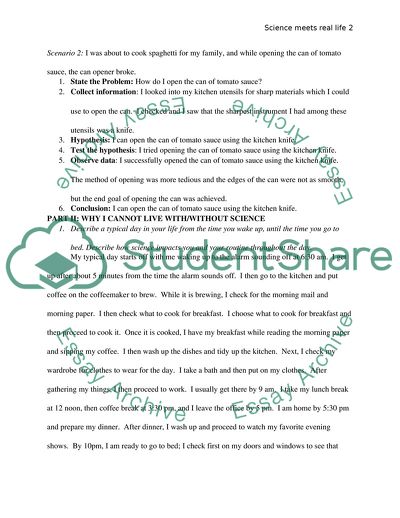Cite this document
(Science Meets Real Life Term Paper Example | Topics and Well Written Essays - 1750 words - 1, n.d.)
Science Meets Real Life Term Paper Example | Topics and Well Written Essays - 1750 words - 1. https://studentshare.org/science/1748611-explore-how-you-apply-different-aspects-of-science-in-your-daily-life
Science Meets Real Life Term Paper Example | Topics and Well Written Essays - 1750 words - 1. https://studentshare.org/science/1748611-explore-how-you-apply-different-aspects-of-science-in-your-daily-life
(Science Meets Real Life Term Paper Example | Topics and Well Written Essays - 1750 Words - 1)
Science Meets Real Life Term Paper Example | Topics and Well Written Essays - 1750 Words - 1. https://studentshare.org/science/1748611-explore-how-you-apply-different-aspects-of-science-in-your-daily-life.
Science Meets Real Life Term Paper Example | Topics and Well Written Essays - 1750 Words - 1. https://studentshare.org/science/1748611-explore-how-you-apply-different-aspects-of-science-in-your-daily-life.
“Science Meets Real Life Term Paper Example | Topics and Well Written Essays - 1750 Words - 1”. https://studentshare.org/science/1748611-explore-how-you-apply-different-aspects-of-science-in-your-daily-life.


